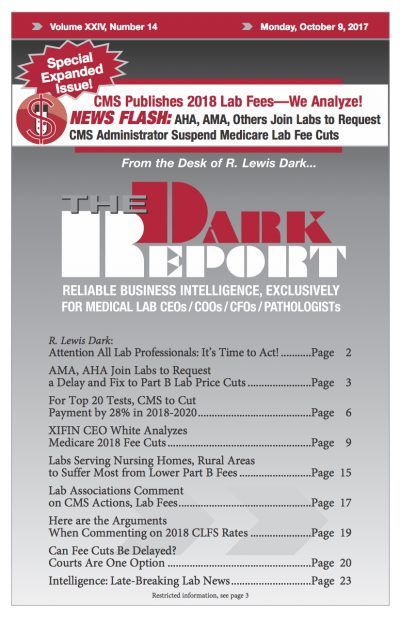CEO SUMMARY: Some lab companies may be prepared to challenge in court the methodology CMS used in setting the requirements of the Protecting Access to Medicare Act of 2014 to conduct a study of private payer market prices for lab tests and use that data to propose new prices for the Part B Clinical Laboratory …
Can Fee Cuts Be Delayed? Courts Are One Option Read More »
To access this post, you must purchase The Dark Report.


